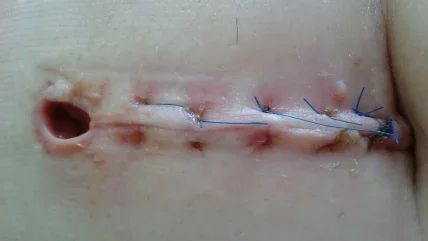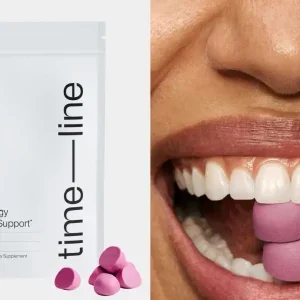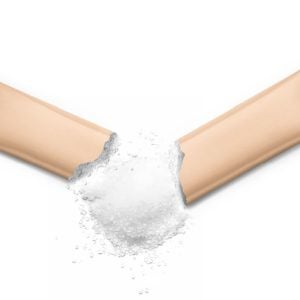
Wound healing is the complicated procedure in which skin as well as skin tissues get repaired or healed post skin injury a market that is expected to reach $22.81 billion by 2022 from $18.99 billion in 2018, at a CAGR of 3.7%.
Factors driving the growth of this market include the increasing prevalence of chronic wounds and acute wounds, increasing aged population, rising R&D activities and advancement in the field of wound care research, rising number of road traffic accidents globally, and the increasing awareness about wound care treatment and management through awareness programs.
1. Hyaluronic Acid
Hyaluronic acid also plays a key role in wound healing. Hyaluronic acid helps wounds heal faster by regulating inflammation levels and signaling the body to build more blood vessels in the damaged area. Applying it to skin wounds has been shown to reduce the size of wounds and decrease pain faster than a placebo or no treatment at all. Hyaluronic acid also has antibacterial properties, so it can help reduce the risk of infection when applied directly to open wounds.
2. Coenzyme Q10
Coenzyme Q10 (Ubiquinone) is one of the most-used skin care active in topical mixtures and ointments. Its efficiency in wound management is due mainly to its collagen booster (via collagenases scavenging) activity that promotes faster recovery of the extracellular matrix in the dermis. Ubiquinone also proved an efficient anti-inflammatory ingredients thus effective even from the inflammation phase of a wound evolution.
3. Oat Beta Glucan
It is a powerful collagen synthesis promoter that interacts with the healing and scarring process, strengthening the collagen rich fibrous tissue that closes the wound and preventing the keloid appearance.
4. Vitamin E
In wound management, Vitamin E efficiently speeds up wound recovery, especially in diabetic, healing-impaired patients.
5. Yeast Beta Glucan
Yeast beta glucan is a naturally occurring polymer extracted from algae and fungi. Beta-glucan is already used to treat human wounds in clinical care, with confirmed efficiency in pain alleviation, improved healing and scarring minimisation.
6. Lysine
In animal tissue, lysine becomes more active at the site of a wound and helps speed up the repair process. Lysine is required for the formation of collagen, a protein that acts as a scaffold and helps support and gives structure to skin and bones. Lysine itself may also act as a binding agent, thereby increasing the number of new cells at a wound. It may even promote the formation of new blood vessels.
7. Chondroitin Sulphate
Several studies using rabbits, have found that treatment with chondroitin sulphate resulted in a dose-dependent increase in cell adhesion and cell proliferation.
8. Vitamin A
When it comes to tissue repair and cell regeneration, getting enough vitamin A in your diet is key. Besides being vital to promoting proper skin health, some evidence even suggests that this vitamin could aid in wound healing as well. A study published in Dermatologic Surgery conducted at Drexel University College of Medicine’s Department of Dermatology in Philadelphia, for instance, found that pre-treatment with retinoids improved wound healing after undergoing facial resurfacing procedures.
9. Vitamin C
Vitamin C, also known as ascorbic acid, is required for the synthesis of collagen. It is also a highly effective antioxidant that protects cells from damage by free radicals. Studies have shown that the vitamin can help speed the healing process of wounds.
10. Rutin
Rutin, a nutrient in plant foods, is believed to protect blood vessels, prevent bruising, and intensify the effect of vitamin C in the body.
11. Grape Seed Extract
Grape seed extract, a popular health supplement that evidence shows may build new blood vessels and help vitamin C enter cells, strengthening cell membranes and prevent scarring in tissue.
12. Centella Asiatica Extract
Centella Asiatica, a traditional Indian medicine extracted from the tropical plant Gotu Kola, helps the wound healing process by reducing glycation processes and implicitly slowing the oxidative damage. It is most effective in the proliferation and remodeling phases by boosting the local metabolism and speeding the healing.
13. D-panthenol
D-panthenol, the stable alcohol form of pantothenic acid (vitamin B5) is a capable ingredient that both in vitro and in vivo studies proved that D-panthenol is responsible for fibroblast proliferation, which is of relevance in wound healing. Accelerated re-epithelisation in wound healing, monitored by means of the transepidermal water loss as an indicator of the intact epidermal barrier function, has also been observed.
14. Green Tea Extract
Green tea extract (90% EGCG) especially due to its active ingredients called EGCG is a strong and multi-purpose active. It is an anti-oxidant rich in polyphenols with proven efficiency as a wound healing support. Encouraging results were obtained even in infected wounds.
15. Niacinamide
Niacinamide (Vitamin B3) is one of the most popular ingredients in cosmetic treatments due to its multipurpose and potency. Several studies confirmed the anti-inflammatory effects of vitamin B3 that are efficient in aiding the immune response and speeding the recovery. Niacinamide is also an actor in increasing fibroblast migration and proliferation – thus speeding the wound closure.
As a key player profiled in the global personal care market, Kangcare Bioindustry possesses high quality ingredients for wound care. Its Hyaluronic Acid, Vitamins, CoQ10, Oat Beta Glucan, Yeast Beta Glucan, and Plant Extracts are likely to dominate the global wound care ingredients market in the coming years.






